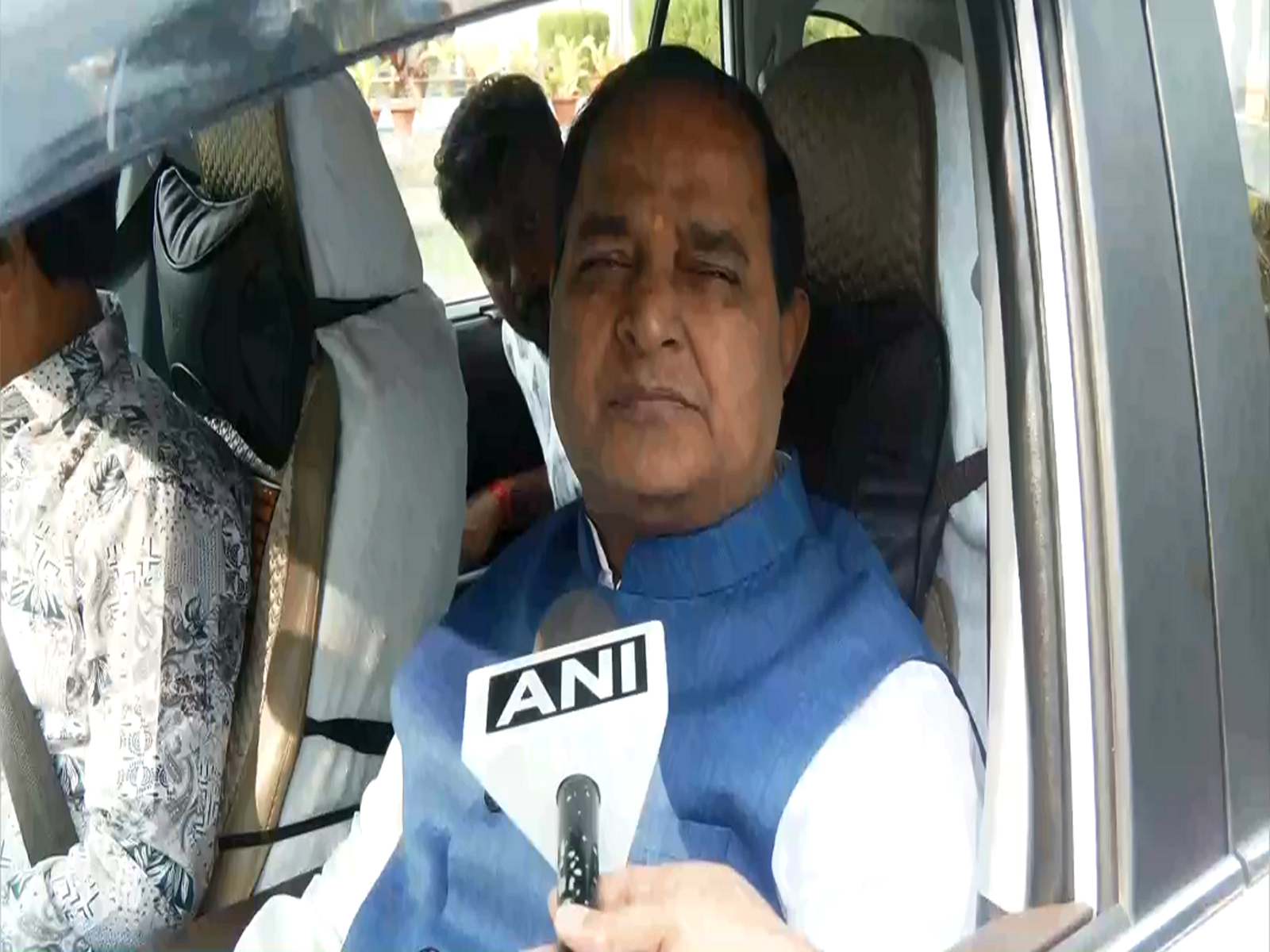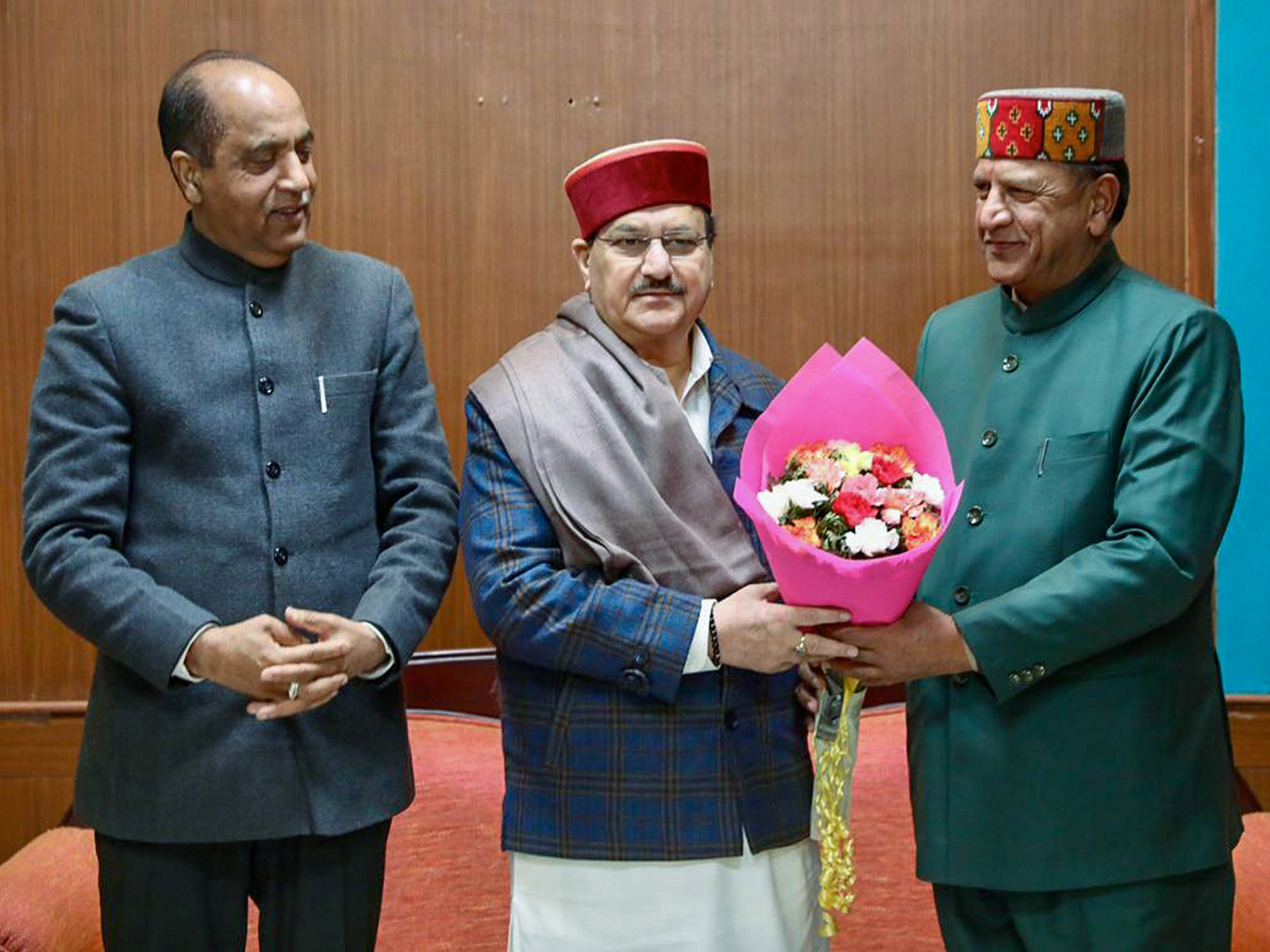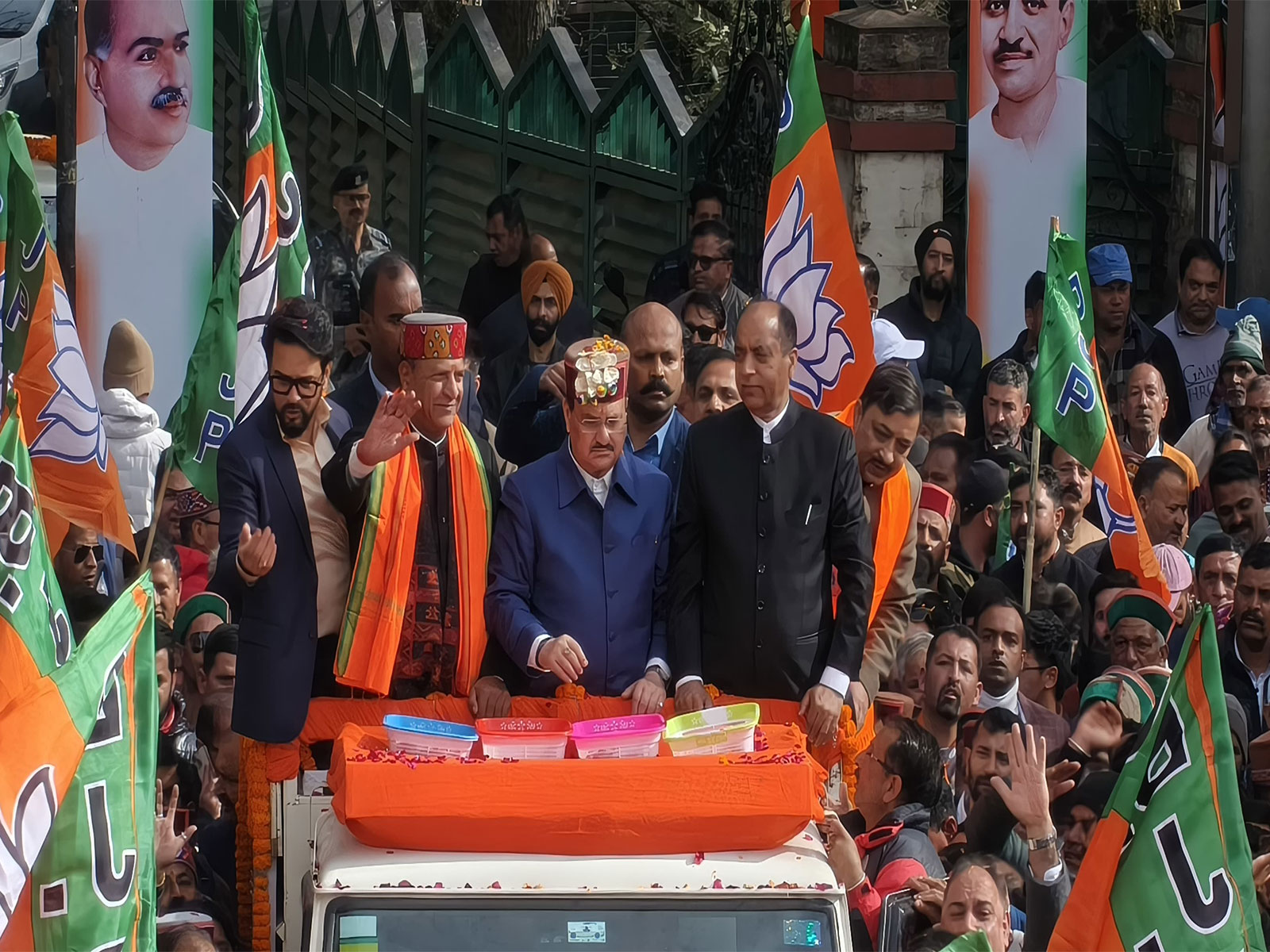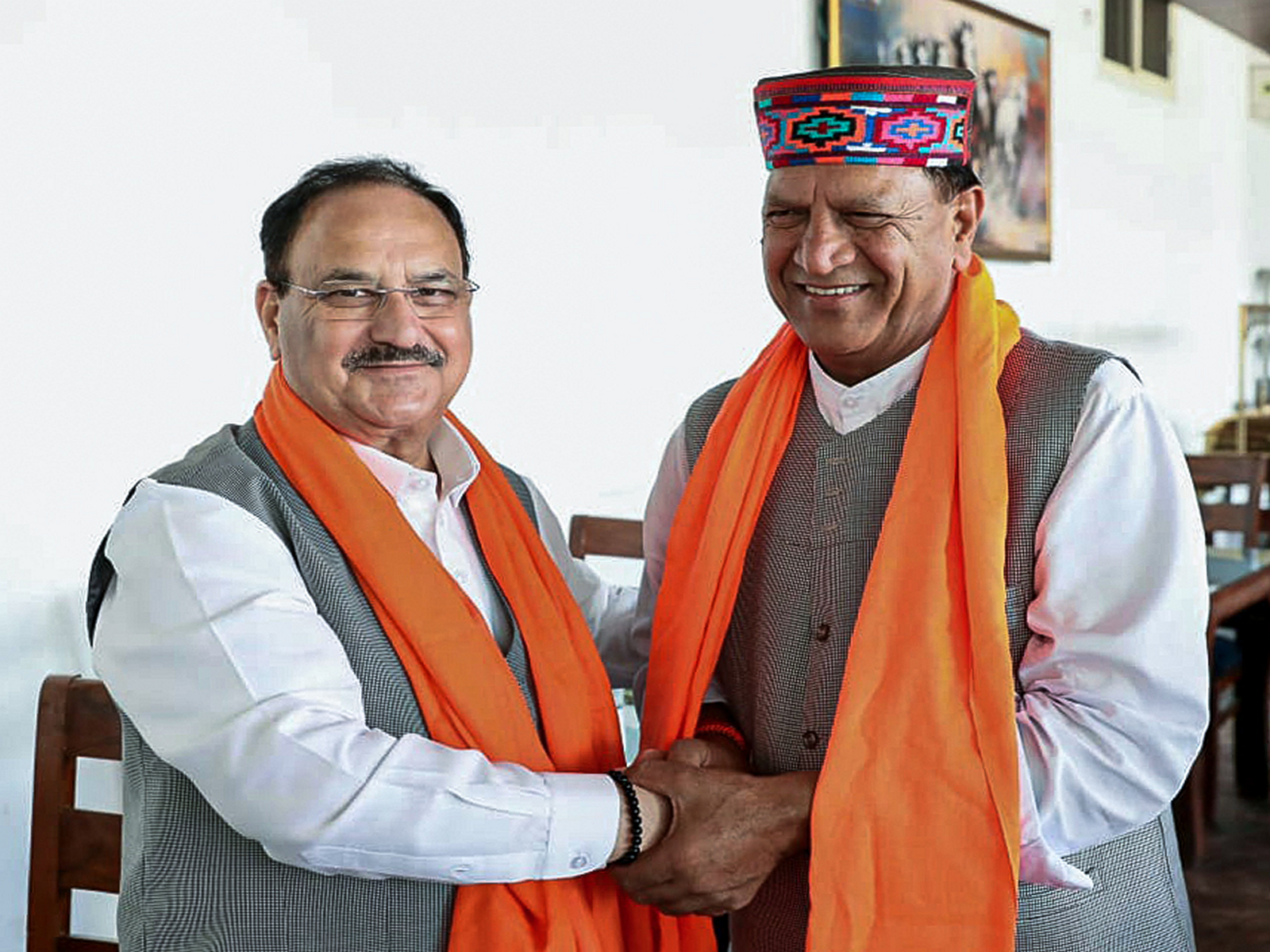Global Hunger Report 2021 lowering India's rank is 'shocking', due diligence not done: Centre
Oct 15, 2021

New Delhi [India], October 15 : The Centre on Friday said it was "shocking" that Global Hunger Report 2021 has lowered India's rank in its latest report and noted that the publishing agencies have not done "due diligence".
The Ministry of Women and Child Development said in a statement that the report has lowered India's rank on the basis of FAO estimate on the proportion of the undernourished population, which is "found to be devoid of ground reality and facts and suffers from serious methodological issues".
According to the report, India's rank has dropped to the 101st rank among 116 countries. India was ranked 94th out of 107 countries in 2020.
The ministry said the report, prepared jointly by Irish aid agency Concern Worldwide and German organisation Welt Hunger Hilfe, "completely disregards" the government's massive effort to ensure the food security of the entire population during the COVID-19 period.
It also said that the methodology used by FAO "is unscientific".
"It is shocking to find that the Global Hunger Report 2021 has lowered the rank of India on the basis of FAO estimate on the proportion of the undernourished population, which is found to be devoid of ground reality and facts and suffers from serious methodological issues. The publishing agencies of the Global Hunger Report, Concern Worldwide and Welt Hunger Hilfe, have not done their due diligence before releasing the report," it said.
"The methodology used by FAO is unscientific. They have based their assessment on the results of a 'four question' opinion poll, which was conducted telephonically by Gallup. The scientific measurement of undernourishment would require measurement of weight and height, whereas the methodology involved here is based on Gallup poll based on pure telephonic estimate of the population," it added.
The WCD ministry said verifiable data is available on the government's massive effort to ensure food security during COVID-19.
"The report completely disregards the Government's massive effort to ensure food security of the entire population during the covid period, verifiable data on which are available. The opinion poll does not have a single question on whether the respondent received any food support from the Government or other sources. The representativeness of even this opinion poll is doubtful for India and other countries," the ministry said.
"It is noted with surprise, from the FAO report 'The State of Food Security and Nutrition in the World 2021', that other four countries of this region - Afghanistan, Bangladesh, Nepal and Sri Lanka, have not been affected at all by Covid-19 pandemic induced loss of job/business and reduction in income levels, rather they have been able to improve their position on the indicator 'proportion of undernourished population' by 4.3 per cent, 3.3 per cent, 1.3 per cent and 0.8 per cent points respectively during the period 2018-20 over 2017-19," it added.
The ministry said that Global Hunger Report 2021 and FAO report on 'The State of Food Security and Nutrition in the World 2021' have completely ignored several facts available in the public domain.
It said that as part of the economic response to COVID-19, the government has implemented additional nation-wide schemes such as Pradhan Mantri Garib Kalyan Anna Yojna (PMGKAY) and Atma Nirbhar Bharat Scheme (ANBS).
Under PMGKAY, the Government of India has made an allocation of food grains at 5 kg per person per month free of cost for around 80 crore (800 million) beneficiaries of 36 states/UTs covered under National Food Security Act (Antyodaya Anna Yojana and Priority Households) including those covered under Direct Benefit Transfer for the period April to November 2O2O and again for the period May to November 2021.
"Last year, 3.22 crore (32.2 million) metric tons of foodgrains and during the current year, about 3.28 crore (32.8 million) metric tons of foodgrains have been allocated free of cost under PMGKAY scheme to approximately 80 crore (800 million) NFSA beneficiaries."
The ministry said in addition to food grains, one kg pulses have been provided per household per month for the period April to November 2020 free of cost to all beneficiaries under NFSA covering 19.4 crore (194 million) households.
It said that under ANBS, Government made an allocation of about 8 lakh (800 thousand) metric tons of additional free of cost food grains covering all the states and UTs for migrants/stranded migrants who were neither covered under NFSA nor state scheme PDS cards, @ 5 kg per person per month free of cost for a period of two months - May and June 2020. In addition to food grains, about 0.27 lakh (27 thousand) metric tons 'whole chana' was allocated under ANBS for this period.
The allocation of free food grains, pulses/whole chana under PMGKAY and ANBS was in addition to normal allocation done under the NFSA
The statement said that in addition to PMGKAY and ANBS, the Government of India has allocated food grains under Open Market Sale Scheme (Domestic) for all the beneficiaries to whom ration cards have been issued by the state governments under their own schemes but who are not covered under NFSA for three months from April to June 2020 at Rs 21 per kg wheat and Rs 22 per kg rice.
"There is no upper limit for allocation of food grains. This scheme has been extended beyond May 2021," it said.
The ministry also listed other steps taken by the government to provide relief to people during COVID-19 including a hike in MNREGA wages, front-loading payment of instalments, increase in the limit of collateral-free lending and measures to prevent disruption in the employment of the wage-earners below Rs 15,000 per month in organized sector businesses having less than 100 workers.
The ministry said according to the report, India's position on the first indicator, child mortality, has improved in 2021 compared with 2020 and its position on two indicators - child wasting and child stunting - has remained unchanged in 2021 compared with 2020.


















